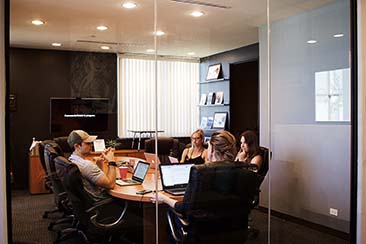Escape rooms are a popular team building activity, but they’re more than just an hour of fun. They create a high pressure environment where communication is key. Working together fast, sharing ideas and solving problems under time pressure shows how teams work and collaborate.
While escape rooms are fun, their real value is in improving team communication – a vital part of the workplace.

The Importance of Clear Communication Under Pressure
Escape rooms mimic real life. Teams have to find clues, solve puzzles and unlock the next step – all before time runs out. Every second counts so vague instructions or talking over each other causes chaos.
In this environment communication has to be sharp. Individuals learn to communicate clearly, concisely and with confidence. It’s not just about speaking though. Active listening is huge too. One team member might find a key piece of information while another sees a puzzle. If they don’t communicate properly progress grinds to a halt.
This is what happens in the workplace when deadlines require quick decisions. Employees who can’t articulate their ideas or listen to others slow down progress. Escape rooms are a safe space to spot and fix this.
Encouraging Open Dialogue Among Team Members
One of the biggest challenges in team communication is a lack of openness. Some people don’t speak up because they think their ideas will be shot down. Others talk over quieter voices without letting them get a word in edgeways.
Escape rooms break these barriers. The game relies on everyone’s input to win. A single missed clue can cost the team valuable time. This encourages even the most introverted to speak up. And dominant personalities often realise that collaboration is better than control.
In escape rooms the “no bad ideas” mentality is key. Someone might suggest something that sounds crazy and it turns out to be the solution. This encourages open dialogue in work teams where all opinions are valued.
Improving Active Listening Skills
Communication isn’t just about talking. Listening is just as important and escape rooms put this to the test. Clues and instructions often appear in unexpected places – a code on a wall, a strange noise or a hidden object. If team members don’t listen to each other or dismiss input progress grinds to a halt.
Take this example: one person finds a lock, another finds the combination and someone else figures out how they fit together. None of that matters unless each person shares their findings.
In many workplaces poor listening leads to repeated mistakes or missed opportunities. Escape rooms help teams practice active listening by rewarding those who fully engage with their colleagues. Teams quickly learn that ignoring others costs time and success.
Assigning Roles and Clarifying Team Responsibilities
A good escape room team works like a good work team. Without roles or responsibilities, people work against each other – duplicating work or missing important tasks.
Escape rooms show this up straight away. Good teams naturally divide up the work. Someone will search for clues, others will work on puzzles or keep track of what’s been done. When roles are clear, communication is smoother and the team is a well oiled machine.
In the workplace, clear roles prevent confusion and increase productivity. Escape rooms are a fun, risk free way to practice this and develop skills that translate to the office.

Building Trust Through Collaboration
Trust is the foundation of good communication. Without it, teams can’t share ideas, make decisions or solve problems. Escape rooms build trust by putting team members in a situation where collaboration is necessary.
Imagine a situation where one person says they have the answer to a tricky puzzle. The team can either trust them and move on or waste time second guessing. Escape rooms reward teams that trust each other and listen to each other. Over time, repeated success builds confidence in each other.
For work teams this is gold. Employees who trust their colleagues will communicate more openly, offer support and share creative solutions without fear of being judged.
Real-Time Feedback for Better Communication
One of the best things about escape rooms is the real-time feedback. When communication breaks down, everyone feels it. Unlike projects at work that take weeks or months to show results, escape rooms give you instant feedback on what works and what doesn’t.
You can reflect on what went wrong. Did someone not listen? Was information shared clearly? You can apply that to real life and improve your team.
This real-time feedback loop accelerates growth. Teams leave the escape room not just having had fun, but with practical ways to communicate better.
Learning to Stay Calm and Communicate Effectively
Pressure amplifies communication challenges. When we’re under stress we get frustrated, snap at colleagues or withdraw altogether. Escape rooms show how we handle pressure and teach teams to stay calm under stress.
Good teams learn to communicate more intentionally even when the clock is ticking. Instead of panicking they prioritise tasks and discuss solutions without letting emotions get the better of them. This skill translates perfectly to the workplace where deadlines, client demands or unexpected problems arise.
Teams that stay calm under pressure perform better.
A Fun and Engaging Way to Build Skills
Unlike traditional team building exercises, escape rooms are fun. People participate more when they’re having fun. Instead of forced workshops or lectures, escape rooms let teams learn communication skills naturally.
The shared experience creates stronger team bonds. Win or lose, the team has a story to tell – a story that builds relationships and rapport.
Overall escape rooms make communication training feel like not work.
Final Thoughts
Escape rooms do more than just provide a fun activity for teams. They’re a training ground for core communication skills. Teams learn to speak clearly, listen actively and trust each other – under pressure.
The lessons learnt from these experiences can apply to the workplace. Whether it’s solving problems faster, working more efficiently or building stronger relationships, escape rooms help teams unleash their potential.
If your team has communication issues, try an escape room challenge. It’s a fun way to build skills that last.








